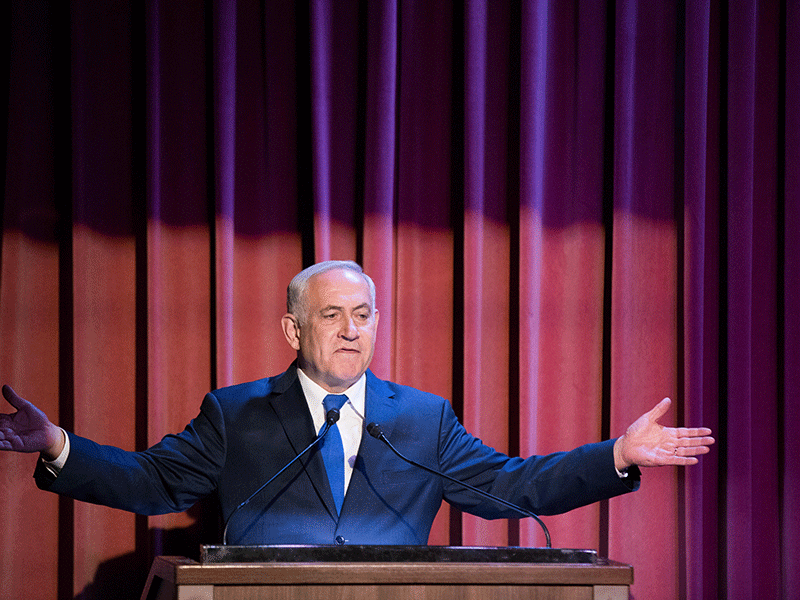A few weeks ago, it seemed as though Israel was about to go to early elections, with Prime Minister Benjamin Netanyahu’s future again on the line. The crisis was triggered when Defence Minister Avigdor Lieberman suddenly resigned, ostensibly over the terms of the ceasefire in Gaza, leaving (only) five parties in a coalition with a one-seat majority in the Knesset. Anticipating further defections, the government was on the edge of collapse.
However, Netanyahu demonstrated his political skills and pulled the remaining groups together. It is possible that they will make it through the next year, but elections must take place no later than November 2019. And once again, the focus will be on whether there is anyone who can challenge Netanyahu.
Most of the prominent Israeli politicians have tried before and failed, but a group of former IDF generals – including Benny Gantz, Gabi Ashkenazi and, to a lesser degree, Moshe (Bogie) Ayalon – are creating some excitement. All are portrayed as straight-talking professionals who led the IDF through a series of confrontations with Hezbollah and Hamas. They are also seen as above the mudslinging and corruption that has tainted many of the parties and their leaders.
But because they have spent most of their lives in the IDF, their policies are unknown. Gantz, who headed the military until 2015 and is the favourite, has avoided making public statements.
READ: STEINBERG: NETANYAHU’S PACT WITH THE DEVILS
In many ways, the rise of Gantz is a return to the old Israeli political framework. After the generation of founders – Ben Gurion, Menachem Begin, Levi Eshkol, Golda Meir and Shimon Peres – the war heroes were embraced as natural leaders. In 1976, Yitzhak Rabin was the first general to become prime minister, followed by Ehud Barak in 1999 and Ariel Sharon in 2001.
However, as politicians, their successes were limited. When they tried to run the country like they ran the IDF, from the top down, they floundered. In contrast to the army, politics requires nuance and constant compromise – skills that men who have spent their entire adult lives in uniform often lack. After Sharon’s very divisive unilateral withdrawal from Gaza in 2005, and the terrorism that followed (as well as Sharon’s incapacitating stroke), the country turned to a new generation of civilian politicians, beginning with Ehud Olmert and Tzipi Livni, and followed by Netanyahu in 2009. This was considered a sign of political “maturity.”
But now, after nine years under Netanyahu, and numerous allegations of corruption, political stagnation (or chaos) and a lack of unifying leadership in the face of social divisions, there is renewed interest in the ex-generals and war heroes. This is why Gantz has been surging in the polls.
It will not be an easy path. To gain power, any new leader, including an ex-general, would have to either form a new party or take over an existing one. (Israelis vote for national party lists – there are no ridings – and each party is allotted the number of Knesset seats that corresponds to the percentage of votes it received.)
The political leaders in the various parties – government and opposition – rarely welcome newcomers who will replace them. And creating a new party with a chance of doing well in an election requires an intense effort and lots of funds. Indeed, it might already be too late for Gantz (or one of the other ex-generals), even if elections are not held until next November. And even if Gantz has a party to lead in the poll and it does very well, he will still need coalition partners to form a government. Here again, the obstacles are formidable.
For these and other reasons, the scenarios in which Netanyahu is replaced as prime minister by a former general seem unlikely, but not impossible. And they keep Israeli politics interesting.







